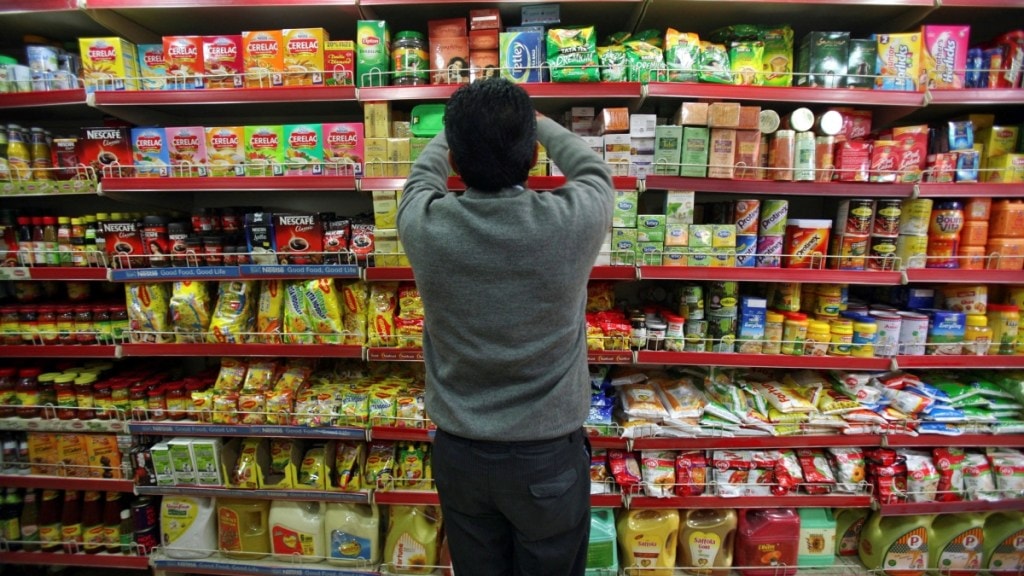The resurgence of small and regional brands within the Rs 5-trillion domestic fast-moving consumer goods (FMCG) market has forced national players to be on their toes. Nimble-footed and aggressive, these small players have used a combination of 4 Ps — product, packaging, promotion and pricing to compete with the big boys.
Some experts say that the shift from unbranded to branded products is aiding overall growth. Others admit that a deep understanding of local needs coupled with a lean management structure is giving a boost to sales.
“The ability to take quick decisions, keep one’s ears to the ground and move quickly apart from a thorough understanding of the regional market are at the heart of the success of local brands,” says Somnath Modi, director, Jaya Industries, a Kolkata-based biscuit and cake manufacturer, which operates in markets such as Bihar, West Bengal and Odisha.
Jaya Biscuits, according to Kantar Worldpanel, has seen penetration grow by 18-20% in the last one year within households in the East on the back of an aggressive push of its Rs 10 packs. Similarly, Priyagold biscuits, which operates in the North and East of India, has seen its penetration grow 16% in the last one year against the biscuit category growth of around 9% in the same time.
Manas Agarwal, director, Priyagold says the company has been making inroads into the chocolate segment with its chocolate coated wafer brand Snakker, competing with the likes of Nestle’s Munch and Cadbury Perk.
Dealers and distributors that Fe spoke to say that Priyagold has been offering 30% more in terms of grammage, which is 3 grams more for every 10-gm pack at Rs 5 per unit, the popular price point in the category, wooing consumers in the process.
While price is an important attribute to attract consumers, Shreeram Bagla, MD, Annapurna Swadisht, a Kolkata-based FMCG company backed by stock market investor Shankar Sharma, says small brands cannot ignore other aspects such as branding and packaging. The company is also increasing its distribution footprint by 30-40% this financial year as well as ramping up manufacturing capacity in its quest for growth.
“We are clear where we are operating. It is in the tier III and tier IV markets, where the ticket size may be small, but the aspirations of consumers are big. They want neat and clean branded products, with colourful packaging, delivered at an affordable price point. These factors are aiding growth. We closed FY23 with a topline of Rs 161 crore. Our target is to touch Rs 320-325 crore in terms of turnover by the end of FY24,” says Bagla said in a conversation with FE.
Available in bright and colourful packs with names such as Jackpot, Balloon and Ringa for its range of fryums or puffed snacks, amongst its most popular products, dealers and distributors in markets such as Kolkata say that Annapurna Swadisht is hard to miss on shop shelves. The Rs 5 price point for its fryums as well as other products such as wafers, namkeens, rusks and the newly-launched noodles range ensure that sales are steady.
According to NielsenIQ, products that are available at Re 1, Rs 5 and Rs 10 per unit, which are called low-unit packs, have a penetration of about 35-40% in the domestic FMCG market. As crude-linked derivatives remain benign for now, small players are expected to continue operating at lower prices, forcing the big boys to react.
For instance, Saras Industries, an Ahmedabad-based company which is into detergent powders and bars, has been offering 200-gm detergent bars at Rs 10 per unit for months now, according to Gujarat-based distributors and dealers. In contrast, bigger rivals such as Hindustan Unilever (HUL) have 160-gram Rin detergent bars priced at Rs 10 per unit.
The bigger and cheaper detergent bars from Saras in the Gujarat market have attracted consumers. According to data from Kantar Worldpanel, Saras detergents bars have grown by 23-30% in the last one year in terms of penetration and continue to make inroads into households in the Gujarat market. The same goes for Challenge detergent bars in Tamil Nadu and Supremo 51 detergent bars in Madhya Pradesh, which have grown by 42-101% in the last one year within households.
Gippi Noodles from Balaji Wafers, on the other hand, has seen penetration almost double from 30% to 58% in a year in Gujarat on the back of what it describes as a “more for less” strategy. A 70-gm pack of Gippi Noodles is available for Rs 10 versus Nestle’s Maggi noodles, which is priced at Rs 14 for the same grammage.
Chandubhai Virani, founder and MD, Balaji Wafers, says affordability is the key factor for growth. “If consumers have to be interested in your product, it has to be within their reach. Our endeavour has been to make Gippi Noodles affordable to the masses,” he said in a conversation with Fe.
With an over 1,000-strong dealer network and a presence in multiple states including Gujarat, Rajasthan, Maharashtra, Madhya Pradesh and Uttar Pradesh thanks to flagship brand Balaji Wafers, Virani says that he is looking to give a bigger push to Gippi Noodles in the future.
